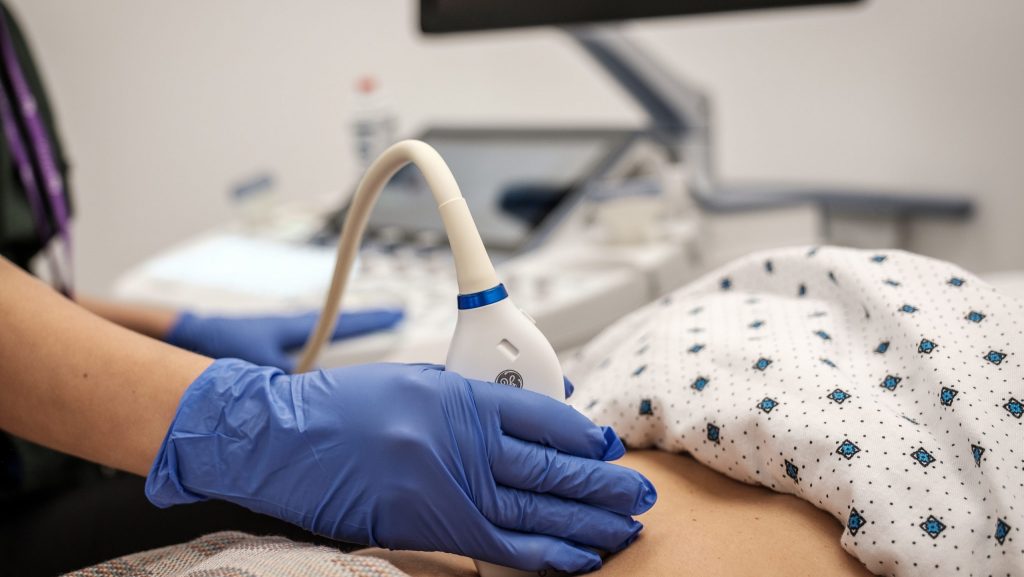The Metro: ACLU report calls for end to Michigan’s parental consent law for abortions
The Metro April 11, 2024Today on “The Metro,” we’re joined by ACLU Political Director Merissa Kovach to discuss the report and how the policy limits health care access for young people.

Abortion rights are the subject of a nationwide debate this week following a court decision in Arizona making the procedure illegal in the state.
Here in Michigan, many thought we were past these discussions, thanks to the 2022 vote protecting Michiganders right to choose. However, there seems to be a group that was left in a gray area — those under 18 years old.
Michigan law requires young people seeking an abortion to get permission from their parents or, in some cases, a judge. Those in favor of this law argue it’s about keeping families in the loop, making sure young people aren’t making big decisions alone, before they are ready for them, and upholding parental rights to guide their children through significant health choices.
A new report from the American Civil Liberties Union (ACLU) argues this approach is harmful, limiting the rights of young people and making access to health care for the most vulnerable among us harder than it should be.
Merissa Kovach, political director for the ACLU, joined The Metro on Thursday to share more about the report and why they’re calling for change.
Kovach says they’ve been advocating to repeal the parental consent law for more than a decade. The report was published to help people understand how it impacts young people.
“We want the public to have this information. We want them to have the facts about how these laws are harmful, and how the medical community agrees with that,” Kovach said.
A large number of people already involve parents or other trusted adults in their abortion care, Kovach says. A majority of the medical community also agrees the law is extreme and adds more challenges to people seeking abortions.
“The report shows these laws harm young people who cannot involve a parent or guardian,” Kovach said. “These laws cause harm by delaying access to medical care: by forcing young people to involve a parent when it is not safe for them to do so; by forcing young people through an onerous and often traumatic legal process; and in some cases by forcing them to remain pregnant against their will.”
Use the media player above to to hear the full interview with ACLU Political Director Merissa Kovach.
More headlines from The Metro on April 11, 2024:
- A pilot two-way 10-mile autonomous vehicle shuttle route is in the works between Michigan Central to the East Riverfront near Walker Street in Detroit. Chief of Mobility Innovation Tim Slusser joined the show to discuss.
- State House staffers in Lansing are forming a union. President of Teamster Local 243 Scott Quenneville and Connor Berdy, a legislative aide for State Rep. Kimberly Edwards (D-Eastpointe) joined the show to talk about where they’re at in the process.
- “The Safety Net” is premiering at the 2024 Freep Film Festival. It follows the work of nurse practitioner Dean Carpenter, an advocate for the city’s unsheltered population. Carpenter died in 2019. We’re joined by filmmaker Shiraz Ahmed who tells Carpenter’s story and also looks at how unequal distribution of health services impacts Detroiters.
- WDET’s Ryan Patrick Hooper spoke with Cinnamon Triano, a documentary filmmaker who worked on the movie “The World According to Allee Willis.” The film about the Detroit songwriter – who penned the theme song to “Friends” and “September” with Earth, Wind and Fire – premieres at the Freep Film Festival.
Listen to The Metro weekdays from 11 a.m. to noon ET on 101.9 FM and streaming on-demand.
Trusted, accurate, up-to-date.
WDET strives to make our journalism accessible to everyone. As a public media institution, we maintain our journalistic integrity through independent support from readers like you. If you value WDET as your source of news, music and conversation, please make a gift today.
